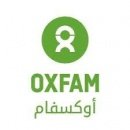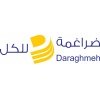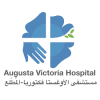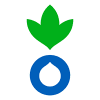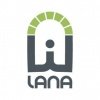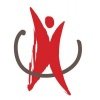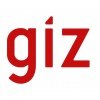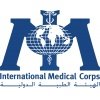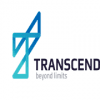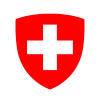SRHR-GBV Research Paper
Terms of Reference
SRHR-GBV Research Paper
Assignment: Researching and writing a research paper and case studies that analyse gaps, needs, and available services and policies in regards to sexual and reproductive health and rights and gender-based violence, focused on women, youth, and people with disabilities in the Occupied Palestinian Territory (OPT)
Location: West Bank, East Jerusalem, and Gaza.
Oxfam is an international confederation counting 19 organisations working together with partners and local communities in more than 90 countries. Oxfam has been working in the Occupied Palestinian Territory (OPT) since the 1950s; a country office was established in Jerusalem in the 1980s. Oxfam mainly works in the most vulnerable communities in Gaza, East Jerusalem, and Area C.
1.Context Background
Women, girls, and vulnerable groups including youth and people with disabilities (PWDs) in the OPT face a protracted, chronic, and multi-pronged crisis that has been exacerbated since 7 October 2023. This crisis is shaped by acute and long-term humanitarian needs and challenges as a result of the Israeli military occupation, the Israeli blockade of Gaza, a the lack of respect and accountability to international laws, the intra-Palestinian divide, and recurrent military escalations. These challenges are exacerbated by deeply entrenched harmful masculine and patriarchal social structures and norms that hinder individuals from asserting their bodily integrity and sexual and reproductive health and rights (SRHR) and perpetuate gender-based violence (GBV). Restrictive social and cultural norms, along with misconceptions on SRHR, prevent women and girls, youth, and women and girls with disability (WGWD) from accessing vital information and services. Displaced women and girls often face barriers to accessing SRHR and GBV services, including reproductive healthcare, contraceptives, and maternal health services, resulting in an increase in vulnerabilities and risks. The Palestinian public health system, burdened by years of movement restrictions, import limitations, and the consequences of the Gaza blockade, is ill-equipped to address SRHR or protection concerns, including insufficient infrastructure. Shortages in essential supplies related to SRHR, as well as specialized staff, further hinder the provision of adequate care. Government health funding allocations remain minimal, with only a fraction allocated to GBV-SRHR initiatives, thus perpetuating the scarcity and compromised quality of available services. Information and awareness of services for SRHR and protection that do exist is localised and fragmented. Marginalised and vulnerable groups, particularly youth, are often unaware of where to seek specialised services and service providers often lack comprehensive service directories of localised services and initiatives. Limited access to water creates challenges for women and girls during menstruation, potentially leading them to resort to unhygienic materials or practices, which increases the risk of infections and reproductive health complications. Critical challenges remain related to national laws, regulations, and policies that aim to support and protect women from domestic violence: they are outdated and irrelevant, and for those that do exist, the insufficient funding and capacities hinders their effective implementation and strategic coordination.
Especially since 7 October 2023, women, girls, and vulnerable groups including youth and PWDs have had to deal with new and intersecting challenges and oppressions. In the West Bank, frequent military incursions, forced housing demolitions and forced displacement, movement restrictions, and overall violence from Israeli forces and settlers have created gender-specific risks and vulnerabilities, and women and vulnerable groups face increased barriers and risks to their SRHR and protection. Women and girls reduce movement to avoid experiencing intrusive searches and potential violence by Israeli soldiers which further hinders their access to healthcare, including mental health and protection services, education, and economic opportunities, which can limit their ability to make and execute decisions on their bodily autonomy, economic independence, and live a life free from violence. In Gaza, Israeli forces have been shown to have destroyed SRHR facilities across Gaza while imposing a siege and preventing humanitarian aid including SRH related medication and equipment from entering the strip, with significant impacts on women and girls’ reproductive rights and autonomy. The majority of SRHR and GBV services were either not functioning or inaccessible in Gaza since October 2023, and while some health facilities have started providing SRHr or protection services, critical staff shortages, supply gaps, and damaged infrastructure restricts access and availability of services. Additionally, GBV instances in Gaza are rising drastically, with a notable increase in resource denial, physical assault, and emotional and psychological abuse and there is evidence of systemic use of GBV and denial of SRHR by Israeli forces. Pregnant women are struggling to reach facilities that are operating due to unaffordable transportation and unsafe roads. Inadequate nutrition as a result of the blockaid, lack of aid, and destruction of water sources, agriculture and livelihoods has drastically increased food insecurity and malnutrition, having severe consequences for SRHR.
2.Overall objective of the service:
Oxfam’s Gender Justice Program is currently implementing three key projects promoting service provision and advocacy towards SRHR and GBV integrated services in the OPT: ‘Markaz’ Funded by Enabel- Belgian agency for international cooperation, ‘Masarouna’ funded by the Dutch Ministry of Foreign Affairs, and ‘Power to Choose’ fubded by Global Affairs Canada (GAC). It is within this context that Oxfam is commissioning a consultant to produce a research paper examining the particular challenges related to SRHR and GBV with a particular focus on youth, women, and PWDs especially in the emergency context in the West Bank (including East Jerusalem) and Gaza that will be used to inform advocacy and awareness raising efforts for the three aforementioned projects and within Oxfam’s broader influencing work on SRHR, GBV, and gender equity objectives. The rapidly changing environment and emergency context in both Gaza and the West Bank necessitates a detailed analysis at the key challenges and gaps in services, policies and funding sources, as well as integration of SRHR and GBV in emergency responses within the context of the OPT. This report will provide case studies and recommendations to be used to inform advocacy and influencing work and increase access and services for SRHR and GBV as well as better integrate SRHR and GBV in emergency contexts.
For the Full TOR and more Details, Please Click Here.




